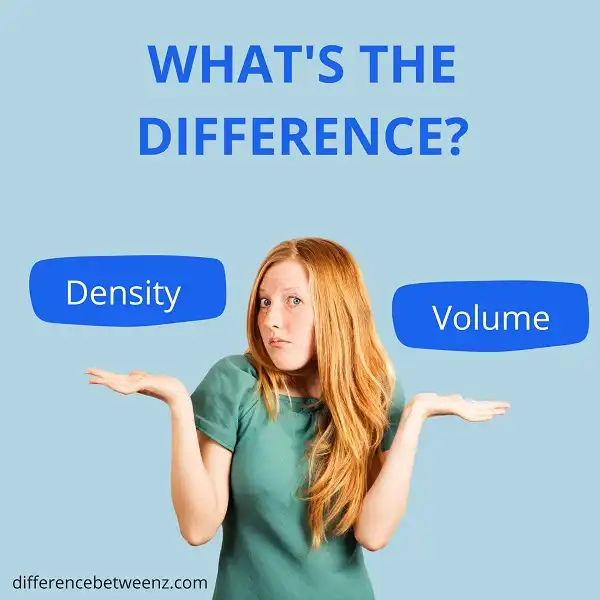What is the difference between density and volume? This question often confuses people, especially when it comes to solids and liquids. In this post, we will clear up the confusion and explain the difference between these two terms. Stay with us to learn more!
What is Density?
- Density is a measure of how much mass an object has in a given volume. In other words, it’s a measure of how tightly packed together the particles that make up an object are. The more mass an object has in a given volume, the more dense it is. Density is usually expressed in grams per cubic centimeter (g/cm3).
- There are many different factors that can affect density. For example, the density of a gas will change depending on its temperature and pressure. The density of a liquid will change depending on its temperature, too. And the density of a solid will change depending on its temperature and what phase it’s in (solid, liquid, or gas).
- Density is an important concept in many fields, including physics, engineering, and geology. For example, understanding the density of rocks is important for things like building bridges and tunnels. And understanding the density of gases is important for things like weather forecasting and airplane flight.
What is Volume?
Volume is a measure of how much space an object occupies. In the International System of Units (SI), the unit of volume is the cubic meter. The cubic meter is equal to the amount of space that would be occupied by a cube with sides that are one meter long. Volume can also be expressed in terms of other units, such as liters, gallons, or cubic feet. Volume is often used to measure the amount of liquid in a container, such as a milk jug or gasoline tank. It can also be used to measure the amount of material in a solid object, such as a rock or block of metal. Volume is an important property in many areas of science, such as physics and chemistry.
Difference between Density and Volume
Density and volume are two terms that are often used interchangeably, but they actually refer to two different things. Density is a measure of how much mass is contained in a given volume. For example, water has a density of 1 gram per cubic centimeter.
- This means that 1 liter of water (1000 cubic centimeters) will have a mass of 1000 grams. In contrast, volume is a measure of the amount of space that an object occupies.
- For example, a cubic centimeter is the volume of a cube that is 1 cm on each side. Density can be calculated by dividing the mass of an object by its volume. Conversely, the volume of an object can be calculated by dividing its mass by its density.
- Density and volume are both important concepts in physics and engineering. In many cases, it is necessary to know both the density and the volume of an object in order to solve problems.
Conclusion
In conclusion, density and volume are two different properties of matter. Density is the measure of how much mass is in a given volume while volume is the measure of how much space an object occupies. While they are related, it is important to understand the difference between the two concepts when working with physics or chemistry problems.


